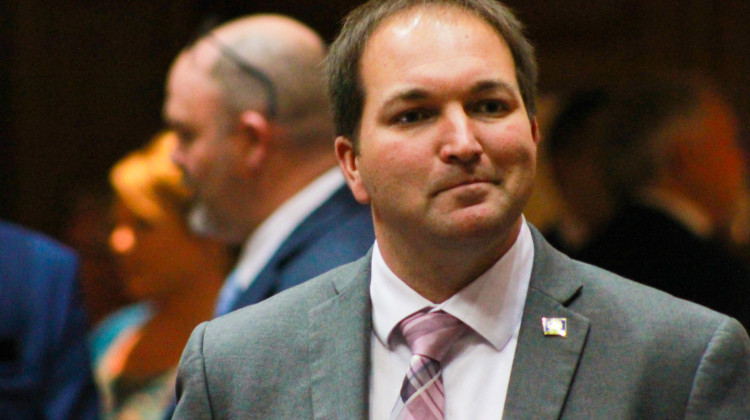
Indiana lawmakers will write a new, two-year state budget during the 2023 legislative session.
Brandon Smith / IPB NewsThe Indiana Commission for Higher Education wants state lawmakers to rethink the formula for funding higher ed.
But that proposal isn’t being met with universal praise.
The issue was debated in hearings at the State Budget Committee this week.
The old funding formula prioritized improvements in completing degrees. The commission said the new formula should be broader. Commissioner Chris Lowery said it should include improvements in the percentage of high schoolers who go to college, degree completion and keeping graduates in Indiana.
“Having those students be in front of employers, employers in front of those students, to help them stay here instead of going to neighboring or other states when they’re completing,” Lowery said.
Ivy Tech President Sue Ellspermann said she welcomes the new model. But she urged lawmakers not to completely forget the emphasis on degree completion – which has what Ivy Tech has focused on.
“We would hope to be held harmless because we did the work these last years,” Ellspermann said.
Join the conversation and sign up for the Indiana Two-Way. Text "Indiana" to 73224. Your comments and questions in response to our weekly text help us find the answers you need on statewide issues and throughout the legislative session.
Indiana University President Pamela Whitten said she welcomes greater transparency in how colleges and universities are funded by the state.
“I really had a hard time understanding the last formula," Whitten said. "Hopefully, I was not the only one in that situation.”
Whitten became IU's president in July 2021, but this is her first legislative session working on a new state budget.
Many of the schools made critical workforce needs a key part of their pitches to state lawmakers for new funding.
Inflation was a common theme among several presentations. University presidents like Ball State’s Geoffrey Mearns touted their efforts to keep school costs as low as possible while lamenting a seeming lack of help from the state.
“There has been a disparity for at least a decade between inflation and the very modest increase in operating appropriations for each institution,” Mearns said.
The universities’ funding pitches were also geared towards addressing workforce shortages – like outgoing Purdue President Mitch Daniels asking lawmakers for $89 million to build a new nursing and pharmacy education facility.
“We have grown our nursing program as fast as we could within the space available," Daniels said. "But I think everyone knows the need for nurses. Our program is top-rated.”
The 2023 budget-writing session will begin in January.
Contact reporter Brandon at bsmith@ipbs.org or follow him on Twitter at @brandonjsmith5.
9(MDAyMzk1MzA4MDE2MjY3OTY1MjM5ZDJjYQ000))
 DONATE
DONATE






 Support WFYI. We can't do it without you.
Support WFYI. We can't do it without you.